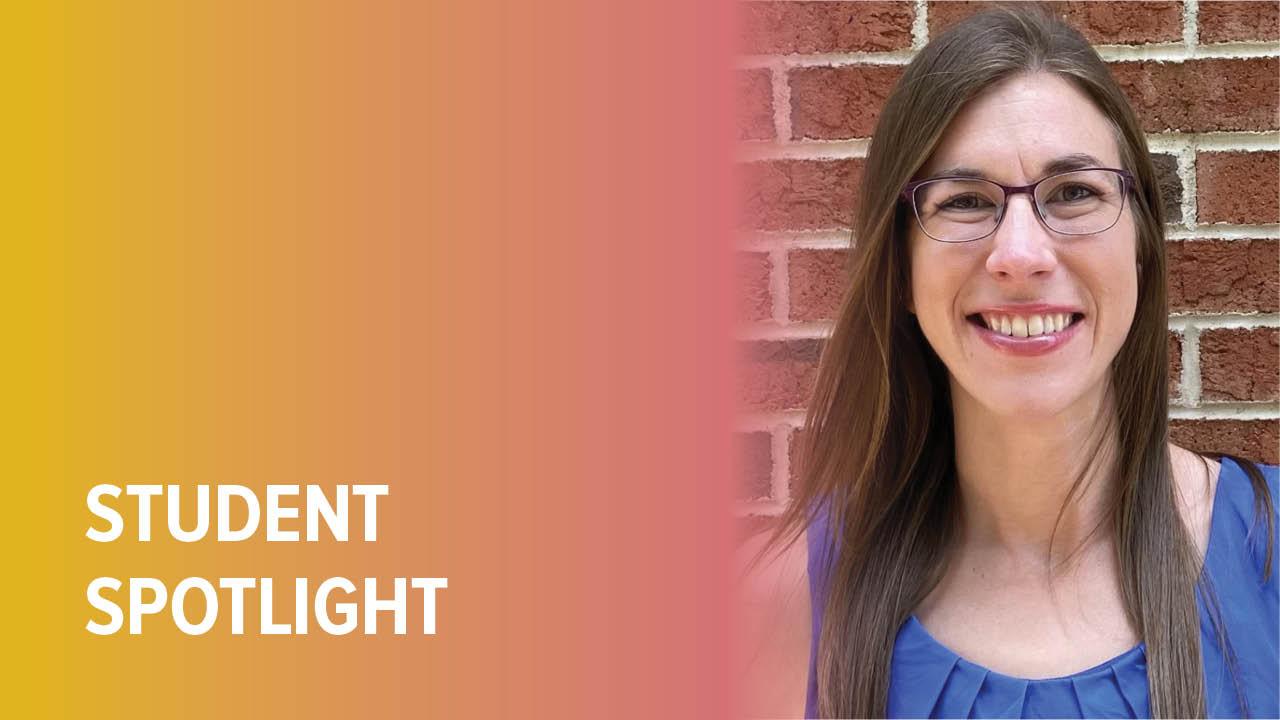
Student Spotlight: Amanda Nobbe
Growing up, Amanda Nobbe always knew she wanted to be a product developer. “As my education and experience grew in this space, I realized how much the senses came into play when formulating an optimal product for the consumer, and this in itself is a science I wanted to explore,” she says.
“Looking back, it’s funny that people teased me for my need to touch and feel everything, and now I’ve incorporated that into my career!”
Nobbe began at Burt’s Bees (Clorox) in 2015 as a senior formulation scientist and later took on an expanded role leading and training a cross-functional sensory panel team that focuses on the look and feel of their personal care products. In this new role, Nobbe designs, executes and interprets sensory studies to help guide key business decisions, including product performance, consistency and improvement, as well as development efficiency and going from lab to scale-up. She also began working with peers to build consumer-product models and launch instrumental sensory discovery platforms. “Of course, all of this requires a strong fundamental understanding of sensory science,” she says, which led her to apply to UC Davis Continuing and Professional Education’s Applied Sensory and Consumer Science Certificate Program.
Working for a company that supports her professional development, Nobbe has been able to attend sensory workshops and conferences to build her skills, but the certificate program is what really gave her the opportunity to further expand her knowledge. “Unlike other short sensory trainings, this is a year-long comprehensive program. What was also unique about the UC Davis program was having an entire course focused on consumer testing, which was an area I wanted to strengthen,” she explains.
Putting Knowledge into Action
Nobbe completed the certificate in 2020, and says the knowledge she gained has already enhanced the sensory program for Burt’s Bees and the rest of the brands under the Clorox umbrella. She has also found new ways to keep sensory panelists’ skills sharp and engaged with remote working situations.
“Going into the program, I wanted to broaden our sensory toolbox and optimize our current methodologies. And what better time to challenge one’s way of doing things than in a pandemic, which imposes all sorts of new challenges,” says Nobbe. “This program has ingrained in me the key sensory principles for conducting high-quality sensory research so that even when creatively reimagining the way we’re working, I’m keeping those principles top of mind.”
“Top rules of thumb I learned about sensory evaluation practices: 1) Groups/departments should be complimentary not competitive; 2) Listen and learn from others as much as you try to teach them; 3) Good ethics are worth the effort – conduct robust research to gain credibility and not lose it”
Along with skills that she could apply in her current role, Nobbe also appreciated the flexibility of the online program and the quality and experience of the instructors. “The instructors are truly pioneers in the sensory field, and beyond that, they have a passion to inspire and educate people in the field,” she says.
Keeping an Open Mind
View a sample lesson from the program
Want to learn more about the Applied Sensory and Consumer Science Certificate Program? Sign up for a free sample lesson to get a sneak peek.
As a scientist for a natural cosmetics company, Nobbe says that the certificate program curriculum, which places a greater emphasis on food applications, helped her see the parallels between the cosmetic and food industries. “I tend to be less risk driven and do what I know,” she says. “Going through the program has taught me that it’s important to be open minded and flexible to exploring different sensory methodologies. It’s all about a well-balanced scientific approach to meet a project’s objective.”
Nobbe’s long-term vision is to continue building her skills in the sensory and consumer science industry. “To be passionate about what I do and be an expert at it is what I want for myself,” she says. “Challenging myself to continue my learning journey through programs such as the UC Davis certificate program enables me to do just that.”
